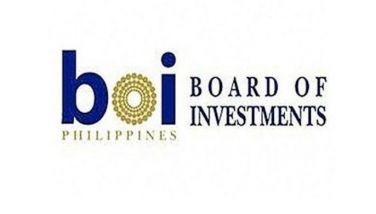To tax or not to tax AUVs? That is the question

April 9, 2002 | 12:00am
Trade and Industry Secretary Manuel Roxas II and Board of Investments (BOI) managing head Greg Domingo appear to be in a quandary on whether or not to tax Asian utility vehicles (AUVs).
While Roxas has repeatedly espoused that AUVs should be exempt from excise taxes, Domingo has been quietly pushing for a valuation-based excise tax for AUVs.
Two years since the taxation issue was raised, the BOI has not been able to make a definite ruling on the matter.
Roxas previously expressed his support for local manufacturers of AUVs and the need to provide some relief for what is now turning out to be the most popular and entry-level vehicle for most Filipinos.
The DTI chief is in favor of maintaining a tax-free status for AUVs which were specifically designed for the region.
Domingo, on the other hand, is supporting a value-based excise tax on all motor vehicles. The US car manufacturing giant Ford Motors Co. is also pushing for a value-based excise tax.
A value-based excise tax would depend on the wholesale price of the vehicle, disregarding the government’s current tax policy based on engine displacement.
AUVs, with their low engine displacement, are currently tax-exempt.
Industry observers said a value-based excise tax would tend to benefit Ford Motors since it would be able to bring in more of its vehicles at a lower cost based on their declared wholesale price.
Most Ford vehicles, especially the popular Expedition models have a big engine displacement and are thus, currently in a higher tax bracket.
Ford does not have an AUV model unlike most of its competitors such as Toyota, Mitsubishi and Isuzu.
No less than the US assistant trade secretary, William Lash, had expressed the US government’s desire for such a value-based excise tax which they claim would level the playing field.
While Roxas has repeatedly espoused that AUVs should be exempt from excise taxes, Domingo has been quietly pushing for a valuation-based excise tax for AUVs.
Two years since the taxation issue was raised, the BOI has not been able to make a definite ruling on the matter.
Roxas previously expressed his support for local manufacturers of AUVs and the need to provide some relief for what is now turning out to be the most popular and entry-level vehicle for most Filipinos.
The DTI chief is in favor of maintaining a tax-free status for AUVs which were specifically designed for the region.
Domingo, on the other hand, is supporting a value-based excise tax on all motor vehicles. The US car manufacturing giant Ford Motors Co. is also pushing for a value-based excise tax.
A value-based excise tax would depend on the wholesale price of the vehicle, disregarding the government’s current tax policy based on engine displacement.
AUVs, with their low engine displacement, are currently tax-exempt.
Industry observers said a value-based excise tax would tend to benefit Ford Motors since it would be able to bring in more of its vehicles at a lower cost based on their declared wholesale price.
Most Ford vehicles, especially the popular Expedition models have a big engine displacement and are thus, currently in a higher tax bracket.
Ford does not have an AUV model unlike most of its competitors such as Toyota, Mitsubishi and Isuzu.
No less than the US assistant trade secretary, William Lash, had expressed the US government’s desire for such a value-based excise tax which they claim would level the playing field.
BrandSpace Articles
<
>
- Latest
- Trending
Trending
Latest
Trending
Latest
Recommended





























